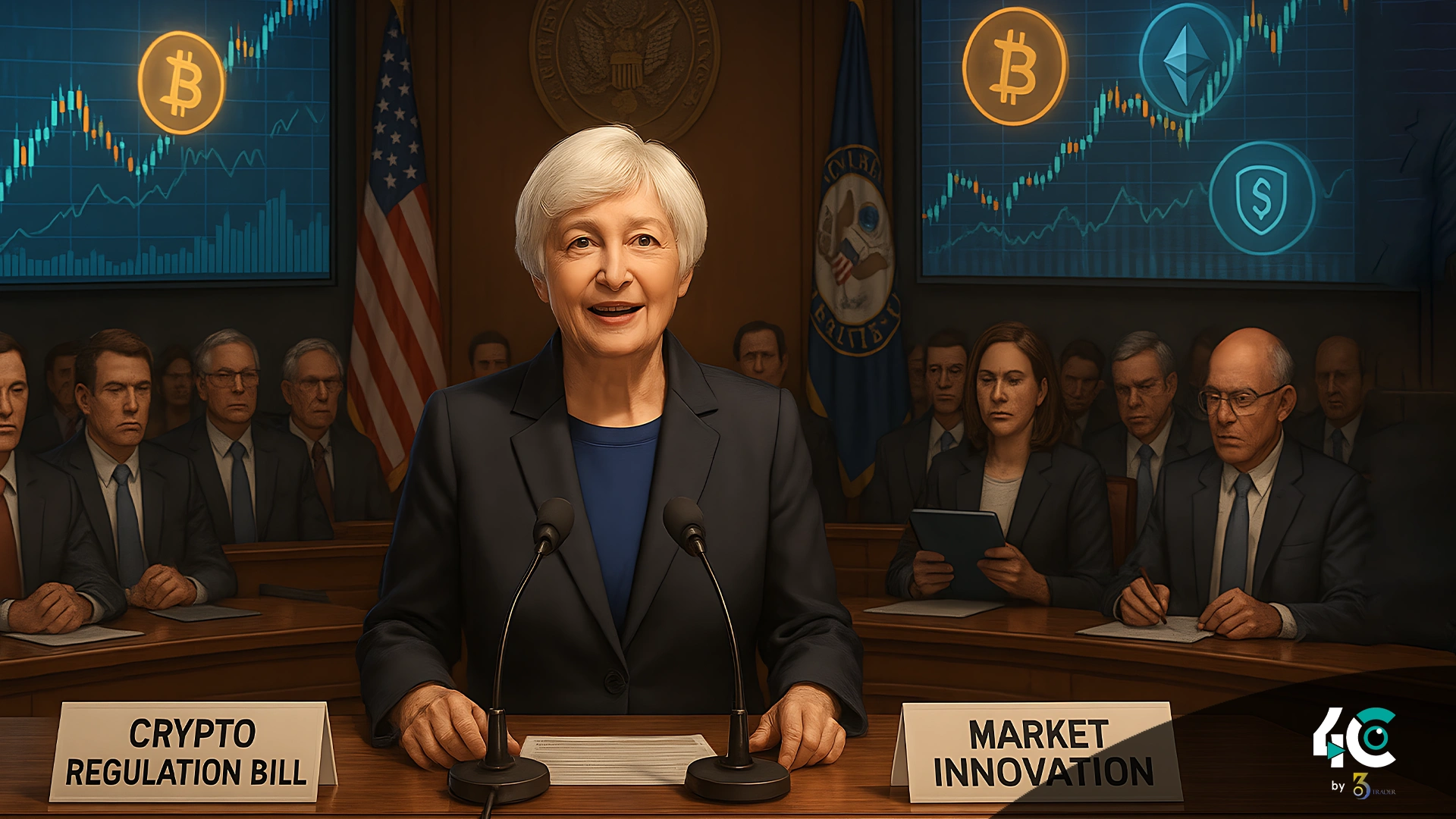The Treasury Secretary highlights that strong crypto legislation is key to securing America’s leadership in the rapidly evolving digital assets market.
A Call for U.S. Leadership in the Digital Asset Revolution
During a recent congressional hearing in the U.S., Scott Bessent, the Treasury Secretary, advocated for the passing of legislation on digital assets that will place the US at the helm of change. The man clearly stated that America must not fall behind the progressive world governed by structured regulation, and innovative policies offer hope to address this.
Bessent stated that the U.S. must take action and establish market rules and stablecoin regulations to outpace other countries. The competition for digital innovations has commenced, with the creation of a blockchain-driven environment crucial for driving economic growth, financial inclusion, and modernization.
His statement aligns with the Biden administration’s policy regarding the regulation of digital asset markets, specifically in response to the request for both a government-controlled stablecoin and a separate stablecoin system. Congress and the Senate are currently considering a pair of Republican-backed drafts.
A Vision for Blockchain Innovation
Bessent has always supported policies that promote blockchain technology, being a strong supporter of digital assets. Former President Donald Trump appointed him, and he has contributed significantly to the federal approach to cryptocurrency. Furthermore, he participated in a working group on stablecoin regulation and opposed creating a central bank digital currency (CBDC) at his confirmation hearings.
Bessent thinks that blockchain can reform the industry and promote financial inclusion; however does he thinks blockchain needs regulation? He argues that the U.S. can maintain its edge—and set a global standard—by embracing digital assets.
Political Divides and Ethical Concerns
Despite her optimism, Bessent doesn’t hold high expectations for a bill. Many congressional Democrats are worried about conflicts of interest, particularly due to former President Trump’s business ventures in the cryptocurrency sector. Trump’s memecoin project and news of a stablecoin release have sparked heated discussions about transparency, accountability, and ethical governance.
Tensions flared up during a hearing on crypto regulation as Democratic lawmakers walked out due to unresolved issues in the bills. They called for stronger measures to mitigate threats of money laundering, foreign interference and systemic risk.
The divisions show how tough it is to regulate a fast-moving industry. Many Republicans are supportive of the bills. However, the Democrats are urging the implementation of stronger safeguards to ensure that innovation does not compromise consumer safety and national security.
Building Momentum for Digital Asset Regulation
Bessent’s advocacy represents a notable change in how the federal government views cryptocurrency despite the political divide. The proposed bill will clarify the digital asset ecosystem, provide certainty for businesses and investors, and stimulate innovation.
The stakes for the U.S. are very high. With China and the EU advancing global digital finance, it would be prudent not to assume that America will automatically lead in that space. According to the Treasury Secretary, there is a growing consensus that if legislation regarding this is not passed, then America will fall behind in competition.
The conclusion marks a significant shift in crypto policy
The crypto regulation debate is more than a political issue. This debate is a pivotal moment that shapes the future of finance. Treasury Secretary Scott Bessent said the U.S. needs to take action now to become a major digital asset center.
Though there is no bipartisan agreement yet, the bills are picking up momentum. If legislators are successful in overcoming these challenges and reaching a consensus, then the United States can shape the future of digital finance and become a global leader.
Will Washington be able to meet the challenges? Will America fulfill its responsibility of leading the world into a new era of financial innovation?



























